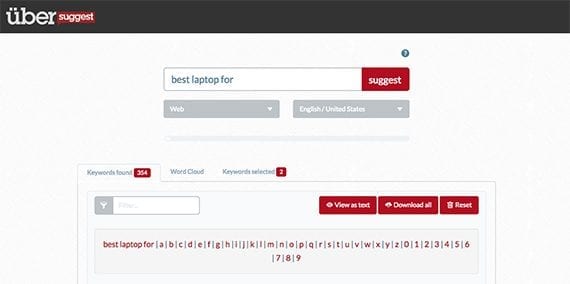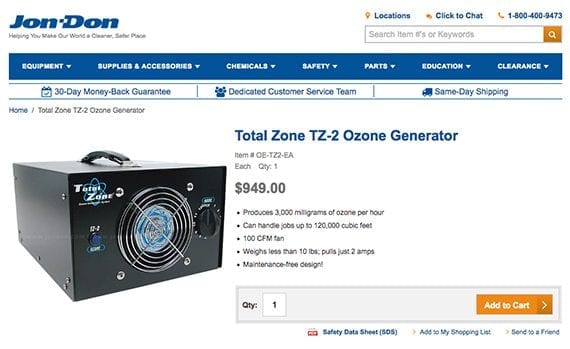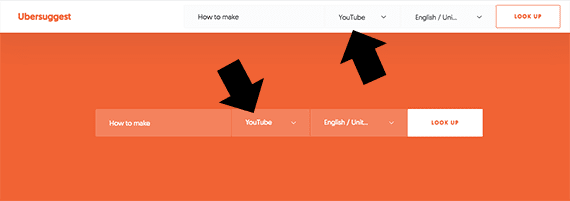Keyword phrases are the fuel that drives many online marketing efforts, including search engine optimization, paid search advertising, and even content ideas. If marketers do a better job in selecting keyword phrases, they may do a better job promoting their products and content.
One way to improve keyword ideas is to aim for specific audience (customer) intent, identifying the words that imply the target action (intent) and including those “intentional” phrases in keyword research.
The reason that someone searches Google, Bing, Yahoo, or any other search engine may be organized into four categories: transactional intent (sometimes called buyer’s intent), investigational intent, informational intent, and, finally, navigational intent.
Transactional Intent
Retail marketers are often most interested in consumers with a transactional intent. These are people who want to make a purchase, but who have not yet decided where to buy.
These shoppers head to a search engine and begin the journey to a purchase, employing relevant words or phrases. Here are a few examples.
- “Coupon”
- “Discount”
- “Shipping”
- “Where to buy”
- “[product one] versus [product two]”
- “Best [product] under [price]”
- “Best [product] for [consumer group]”
Adding these words and phrases to a marketer’s keyword research may help identify long tail phrases that will lead to better pay-per-click results.
For example, let’s do some keyword research using the free keyword suggestion tool, Ubersuggest.
Ubersuggest has been popular with marketers for some time. Last year, marketing guru Neil Patel bought Ubersuggest. You can now access the tool via Ubersuggest.io or in the tool section of Neil Patel’s website.

Ubersuggest will return a long list of keyword phrase recommendations based on your starting phrase. This can be a good way to discover transactional intent keywords.
When we search for the phrase “best laptop for” we are looking for groups of prospects, and Ubersuggest.io obliges with 354 recommended keyword phrases. These keywords will need some refinement, but they are a good starting place. Here are a few of the suggestions.
- “Best laptop for students”
- “Best laptop for video editing”
- “Best laptop for kids”
- “Best laptop for programming”
- “Best laptop for gaming”
- “Best laptop for business”
- “Best laptop for bitcoin mining”
- “Best laptop for the elderly”
At the time of writing, the phrase “best laptop for students” was averaging around 9,900 searches a month, according to Ubersuggest. Although a seller of laptops should consider the competition for the phrase, this might be something to create a landing page on its site to invest in PPC ads. This is just one example generating lists of transactional intent keywords.
Investigational Intent
Sometimes your prospects will be researching products or activities with the ultimate aim of doing or buying something. They are not ready to make the purchase. But they are further along the journey to buying than someone just looking for information.
Imagine a wrestling coach having a conversation with one of his peers at a local tournament. The topic of skin ailments comes up as they can be a problem for wrestlers. The first coach learns that an ozone generator can help. In fact, the other coach tells him that since his team started using an ozone generator, they have had no skin troubles at all.

Ozone machines are good for wrestlers, but other consumers may have questions and may seek answers on search engines.
This coach might conduct a search — “how to use an ozone machine” or “are ozone generators safe.” Starting with these phrases, Ubersuggest generated a long list of additional keywords that may include investigational intent.
- “Are ozone generators safe to breathe”
- “How does an ozone generator work”
- “How long does it take for ozone to dissipate”
- “Are ozone generators safe for kids”
Each one of these keyword phrases could be a blog article or a list of common questions and answers for ozone generators.
Informational Intent
Most online searches likely have an informational intent. Folks have questions that need to be answered, and they turn to Google or YouTube for help.

Ubersuggest and similar tools can also look at query volume and keyword phrases for YouTube specifically.
Answering questions for potential shoppers is a good way to establish a relationship and a sense of reciprocity. Thus informational-intent keyword phrases can help your business discover topics for articles or videos.
For example, looking at query volume on YouTube, Ubersuggest made 370 recommendations for the phrase “How to make,” including:
- “How to make money,”
- “How to make ice cream,”
- “How to make a paper gun,”
- “How to make dubstep,”
- “How to make coffee.”
If your retail business sold kitchen appliances and utensils, you could create videos around making ice cream and making coffee.
Navigational Intent
Sometimes shoppers just want to find a store or a brand online. They want to navigate to that brand’s website as quickly as possible.
For marketers, addressing navigational intent is often about promoting and supporting your brand name. If consumers are familiar with your brand, they are likely to search for it.
There may also be value in trying to generate lists of navigational intent keywords for the brands your store carries. If you sell Nike shoes, for example, what are some of the phrases shoppers are using to navigate to Nike?
- “Nike”
- “Nike shoes”
- “Nike website”
- “Nike stores”
- “Nike shoe store”
- “Nike about us”
